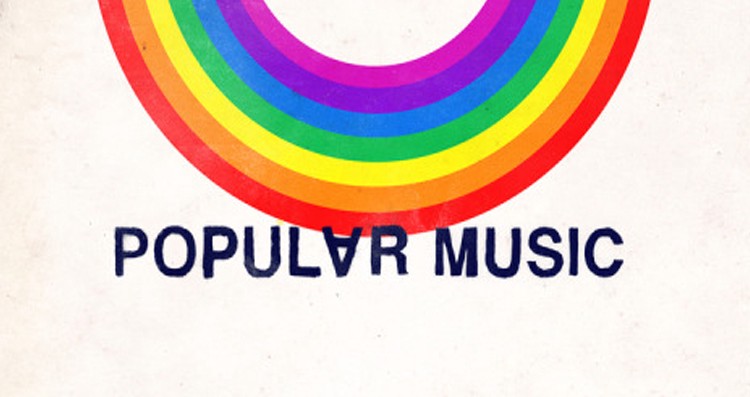Books & Culture
The Contradictory Desires of Popular Music
Kelly Schirmann’s new book packs in visions of the future as pessimistic as they are optimistic

Popular Music, the full-length debut from poet Kelly Schirmann, is a love song to both the harsh beauty of the natural world and the seductive allure of technology. It’s about an unfortunate, life-long romantic relationship with America. And perhaps most of all, it’s about the daily failures that come from trying to capture it all.
Over the past few years, the Portland, Oregon-based poet has been a force — putting out two collaborative collections with poet Tyler Brewington, heading up a label of poetry recordings, releasing music and visual art, and publishing her poems in countless journals. But Popular Music, recently released on Black Ocean, is her first solo outing and is, thematically as well as structurally, an ambitious one.
Contained within Popular Music are two poem cycles, three philosophical personal essays, and one long-form poem. These six sections all look at, in one way or another, how we as humans try to wrap our words and voices around the world we live in. We make art, we write poems, we sing songs, we tell stories to our friends. And we repeatedly fail in capturing the whole, but repeatedly succeed in capturing a piece of it. “We make a practice/of attempting to describe water,” Schirmann writes, “We photograph a mountain/but it never really turns out”.
While documenting her own failure to capture, Schirmann manages to sum up a universal confusion.
“I can’t tell if I’m stupid/or if Earth is a joke I don’t get”
She considers how to live in a world that is painful just as often as its joyous, a world where happiness is bought and sold. “There’s a balm that soothes me/but it has since been discontinued”.
Schirmann, perhaps like many poets, is an idealist trying to participate in the modern world. And she’s in constant battle with the contradictory desires that arise from trying to have both the culture’s idea of success and the idealist’s simple existence. She asserts the mantra, “Better Me, please do not internalize/the fear that people pass off as sensibility” while admitting that “When you seek love above all else/the world will reward you with no money”. It’s the highly-relatable vacillation of a person who’s pulled by high ideals as much as common sense, whose visions of the future are pessimistic as often as they’re optimistic.
Popular Music is also, loosely, about pop music. How pop music helps us in this quest to capture the complex beauty of the outside and inner worlds. “Most of the time the way we feel doesn’t have a corresponding word,” Schirmann writes in one of the book’s essay sections, “It takes a whole clump of them, set to a rhythm, coming out of a specific mouth, to make themselves understood.”
Schirmann sees pop music as connected to, and a larger metaphor for, everything. How do we create or maintain empathy for a world of people coming from different places and experiences? We sing along, of course. “If I sing along, I am approximating the act of this [songwriter’s] discovery in my own body”.
“Schirmann’s poems are about as close as poems get to pop songs without falling off a Billy Collins cliff.”
And pop music, for better or worse, takes some of the pressure off. The exhausting task of trying to find words for the infinite combinations of complex feelings is eased by being able to subscribe to someone else’s words — words accessibly bottled within catchy melodies. “We let ourselves into their vision, relieved of the responsibility of creating our own.”
While she writes about pop songs, she also creates pop songs. Or at least their poem equivalent. Schirmann’s poems are about as close as poems get to pop songs without falling off a Billy Collins cliff. They have lines you want stuck in your head, moments where you can’t help but sing along.
“Life can’t be that hard/if this many people are alive”
“Behind the people I love/are the people they failed at loving”
“Image will replace speech/& then convince speech/that this is language’s fault”
“Technology is boring/but not as boring/as our addiction to technology”
Many of the catchiest, most addicting moments of the book come when Schirmann explores pop music’s reigning theme: How it feels to be in love. “When you have love/you zip yourself inside it like a tent,” she writes, “You watch everything outside the tent/smear itself together seamlessly”.
She distills love’s selective memory (“No one talks about the number of times/they’ve said to a near-stranger/I’ve never felt this way about anyone”), its etiquette (“There will never be an appropriate context/to explain to the person you love/that in many ways/they are better off without you”), and its disbelief in still being part of the mundanity (“To be in Real Love/& still, to have to exchange/money for food, two to three times a day”).

I idealize a taut collection of poems; a no-filler, thematically interlinked, unquestionable whole; like a perfect album. Popular Music is not that. Popular Music is loose and ambling, wandering in the woods; unsure of what it’s looking for, but knowing that — whatever it is — it’s out there somewhere. While there are brief moments where this seems clumsy, where its philosophizing borders on stoner revelation, the book also wouldn’t work as a taut collection. It’s about discovery and the inherent failure that comes with discovery, and Schirmann’s roller coaster of contradictory discoveries creates an essential narrative. In short: Popular Music’s overload is a thematic necessity. It’s not perfect and it’s not supposed to be.









